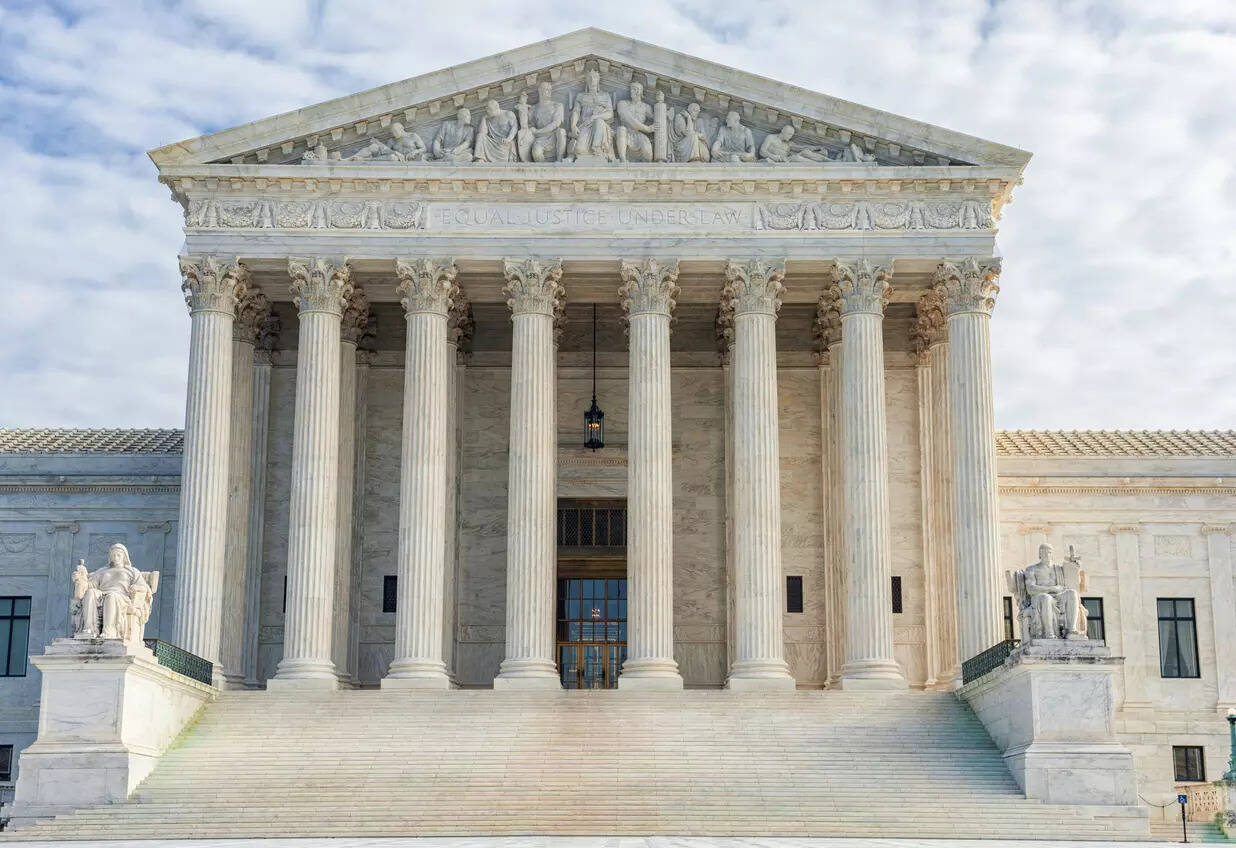
Washington: The U.S. Supreme Court on Monday considered the legality of a provision of the Obamacare law, formally called the Affordable Care Act, that helps ensure that health insurers cover preventive care such as cancer screenings at no cost to patients.
The court heard arguments in the federal government’s appeal of a lower court’s determination that the U.S. Preventive Services Task Force, which under Obamacare has a major hand in choosing what services will be covered, is composed of members who were not validly appointed. Its 16 members are appointed by the U.S. secretary of health and human services without Senate confirmation.
The justices posed sharp questions over whether the law gives the HHS secretary the appropriate level of supervision over the task force, including the power to influence its recommendations and fire members at will, or if the group operates as a largely independent governmental body whose recommendations effectively have the force of law. Several Texas Christians and two small businesses sued in federal court in Texas in 2020 to challenge the task force’s structure. It was the latest in a years-long series of challenges to the 2010 law, Democratic former President Barack Obama’s signature legislative achievement, to reach the Supreme Court. If the justices uphold the lower court’s ruling, according to public health advocates, life-saving tests and treatments that have been cost-free would become subject to co-pays and deductibles, deterring many Americans from obtaining them.
The case centers on whether the task force wields power to such an extent that its members, under U.S. Constitution’s “appointments clause,” are “principal officers” who must be appointed by the president and confirmed by the U.S. Senate or “inferior officers” not subject to these requirements. The task force includes medical experts serving four-year terms on a volunteer basis. It has identified dozens of preventive services as having a high or moderate net benefit to patients including screenings to detect diabetes and cancer, statin medications to lower the risks of heart disease and stroke, and interventions to help people quit smoking or unhealthy alcohol use.
The Justice Department contends that the task force’s members should be seen “inferior officers.”
Hashim Mooppan, a Justice Department lawyer, told the justices that the HHS secretary can remove task force members at will, review their recommendations and prevent them from taking effect, and can require the task force to obtain his approval before it issues any recommendations.
“Given these collective powers of supervision, the task force cannot issue final recommendations that bind the public unless the secretary permits them to do so,” Mooppan told the justices.
DEGREE OF SUPERVISION
Conservative Chief Justice John Roberts pressed Mooppan on whether an HHS secretary is in a position to adequately supervise the task force, practically speaking.
“What the task force does is fairly technical medically and scientifically,” Roberts said. “I mean, is the secretary really supposed to be in the position of going down the line and saying, ‘Yeah, I mean, I know you think we should use this particular thing with this atomic structure and all that kind of stuff, but I’ve got a different view on that?'”
Liberal Justice Sonia Sotomayor appeared sympathetic to Mooppan’s argument on this point.
“That’s the nature of an agency, isn’t it, that they hire experts to help the decision makers come to a conclusion?” Sotomayor asked.
Jonathan Mitchell, a lawyer for the plaintiffs, argued that the HHS secretary’s authority over the task force is minimal.
“The only entity that has the power to impose preventive care coverage mandates is the task force,” Mitchell said. “The secretary’s role is only to determine when those coverage mandates take effect.”
The plaintiffs contend that the task force’s lack of supervision and insulation from removal makes its members “principal officers.”
Liberal and conservative justices alike grilled Mitchell on whether his argument placed too much emphasis on legal language in Obamacare stating that task force members and their recommendations “shall be independent” and “to the extent practicable, not subject to political pressure.”
“Your theory, I think, depends on us treating the task force as this massively important agency that operates with unreviewable authority to make really critical decisions that are going to affect the economy … without any supervision or direction by the secretary,” conservative Justice Brett Kavanaugh said.
“Normally, before that kind of thing would happen, Congress would have provided stronger indications” of that, Kavanaugh added. The New Orleans-based 5th U.S. Circuit Court of Appeals ruled that the task force’s structure violates the Constitution, as the plaintiffs claimed. The government’s appeal initially was filed by Democratic former President Joe Biden’s administration and was taken up by Republican President Donald Trump’s administration.
The Supreme Court is expected to rule by the end of June.
(Reporting by John Kruzel and Andrew Chung; Editing by Will Dunham)

